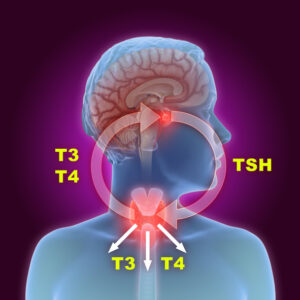COMPLETE MISCARRIAGE
DEFINITION :
“When the product of conception are expelled from the uterus it is called complete miscarriage “
ETIOLOGY / CAUSES :
The etiology of a complete miscarriage, where all products of conception are expelled from the uterus, can vary and often includes several possible factors:
- Genetic Factors: Chromosomal abnormalities in the embryo are a common cause of early miscarriages, including complete miscarriages.
- Maternal Factors:
- Hormonal Imbalances: Issues with hormones such as progesterone can affect the uterine lining’s ability to support pregnancy.
- Uterine Abnormalities: Structural issues with the uterus can make it difficult for a pregnancy to implant or be maintained.
- Infections: Certain infections, such as bacterial or viral infections, can lead to miscarriage.
- Autoimmune Disorders: Conditions where the body’s immune system mistakenly attacks pregnancy tissue can lead to miscarriage.
- Lifestyle Factors:
- Smoking, Alcohol, and Drugs: These substances can increase the risk of miscarriage.
- Nutrition: Poor nutrition or extreme weight changes can impact pregnancy viability.
- Environmental Factors: Exposure to certain chemicals or toxins.
- Advanced Maternal Age: Older maternal age is associated with a higher risk of miscarriage due to increased incidence of chromosomal abnormalities in embryos.
- Trauma or Injury: Physical trauma or injury to the abdomen can sometimes lead to miscarriage.
- Unknown Causes: In many cases, despite thorough investigation, the exact cause of a miscarriage remains unidentified. Miscarriages are unfortunately common, and often the result of a combination of factors rather than a single cause.
CLINICAL FEATURE :
the features of a complete miscarriage typically include:
- Vaginal Bleeding: This is usually the first and most noticeable symptom. The bleeding can vary from light to heavy and may contain clots.
- Abdominal Pain: Cramping and pain in the lower abdomen are common. The intensity can range from mild to severe, depending on individual circumstances.
- Passage of Tissue: The expulsion of tissue, which may include blood clots and the gestational sac, is a hallmark of a complete miscarriage. This tissue can sometimes be identified as embryonic or fetal tissue, depending on the stage of pregnancy.
- Resolution of Pregnancy Symptoms: Symptoms of pregnancy such as breast tenderness, nausea, and fatigue may diminish or disappear following the completion of the miscarriage.
- Cervical Dilatation: The cervix may dilate naturally or may be dilated artificially during the process of passing tissue.
- Confirmation through Ultrasound: An ultrasound examination may be performed to confirm that the uterus is empty of all products of conception. This helps in diagnosing a complete miscarriage and ensuring there are no retained products that could lead to complications like infection or excessive bleeding.
- Uterus is smaller than the period of amenorrhea
COMPLICATION :
While a complete miscarriage generally resolves without intervention, there are potential complications that can arise, especially if not managed appropriately. These complications include:
- Incomplete Miscarriage: In some cases, not all products of conception are expelled from the uterus, leading to an incomplete miscarriage. This can cause persistent bleeding and may require medical intervention such as a dilation and curettage (D&C) procedure to remove remaining tissue.
- Excessive Bleeding (Hemorrhage): Heavy bleeding can occur during or after a miscarriage, especially if the miscarriage is incomplete. This can lead to anemia and may require medical intervention to control bleeding.
- Infection: There is a risk of infection when tissue from the miscarriage remains in the uterus. Symptoms of infection may include fever, chills, pelvic pain, and abnormal vaginal discharge. Prompt medical treatment with antibiotics is necessary if an infection is suspected.
- Emotional Distress: A miscarriage can be emotionally challenging for individuals and their partners. Feelings of grief, sadness, guilt, and anxiety are common and may require emotional support or counseling.
- Future Pregnancy Concerns: While one miscarriage does not necessarily indicate future pregnancy complications, recurrent miscarriages may warrant further investigation into underlying causes that could affect future pregnancies.
- Rare Complications: Rarely, complications such as uterine perforation or damage to nearby organs can occur during surgical procedures to manage miscarriage.
MANAGEMENT :
The management of a complete miscarriage…….
- Confirmation of Diagnosis:
- Clinical Assessment: This includes taking a detailed history regarding symptoms such as vaginal bleeding, abdominal pain, and passage of tissue.
- Physical Examination: A pelvic examination may be performed to assess the cervix and uterus.
- Ultrasound: An ultrasound may be used to confirm that the uterus is empty and that there are no retained products of conception.
- Management of Symptoms:
- Pain Relief: Nonsteroidal anti-inflammatory drugs (NSAIDs) or other pain relievers may be recommended to alleviate cramping or discomfort.
- Bleeding Management: In most cases, bleeding gradually decreases and stops on its own. However, if bleeding is excessive or persistent, further assessment may be needed.
- Monitoring and Support:
- Vital Signs: Monitoring of vital signs (blood pressure, pulse, temperature) may be done initially to ensure stability.
- Emotional Support: Providing psychological support and counseling to the patient and their partner is crucial, as miscarriage can be emotionally distressing.
- Follow-Up Care:
- Scheduled Follow-Up: A follow-up visit is typically scheduled within a few weeks to ensure complete recovery and to discuss any concerns or questions.
- Advice on Resuming Activities: Guidance may be given on when it’s safe to resume normal activities, including sexual intercourse and exercise.
- Prevention of Complications:
- Infection Prevention: Educating the patient about signs of infection (such as fever, foul-smelling discharge) and providing instructions on hygiene and care can help prevent complications.
- Anemia Prevention: Monitoring hemoglobin levels and recommending iron supplements if there is significant blood loss.
- Future Pregnancy Planning:
- If desired, discussing future pregnancy plans, including timing and any potential concerns, can be part of the follow-up care.
- Medical Intervention if Needed:
- Dilation and Curettage (D&C): If there are concerns about incomplete miscarriage or if bleeding persists despite conservative management, a D&C procedure may be considered to remove any remaining tissue.



